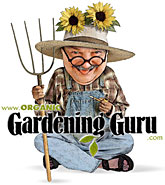Source: Garden Organic, on-line newsletter, home page, March 2009.
The Heritage Seed Library needs your help keeping heritage vegetables alive in a world where fewer varieties are available every year and hybrids dominate seed catalogues.
The only organization of its kind in the UK, the Library is dedicated to preserving and spreading open-pollinated vegetable seeds. It sponsors a seed swap, puts out a catalogue each December, and provides seeds for school gardens. It’s constantly working to identify and cultivate more heirloom varieties, which it then makes available to members.
The goal here is not merely to catalogue the past, but to encourage gardeners to plant these vegetables, so that they remain part of the British Isles’ gardening life rather than becoming museum pieces.
Garden Organic, the UK charity that maintains the Heritage Seed Library, has just sent out a plea for donations so they can continue and expand their work. Garden Organic publishes a quarterly magazine, holds classes (including master composter classes) and maintains its own extensive gardens, which supply its restaurant, Garden Organic Ryton, recently named Britain’s Best Organic Restaurant.
The organization also sponsors a number of research programs (excuse me, programmes) overseas, each of which works to develop and teach organic farming techniques appropriate to that particular region.
Please consider making a donation, and spread the word. If you live in the UK and you have an interest in growing heritage vegetables, consider becoming a Seed Guardian. More on that tomorrow.

 Subscribe to RSS feed
Subscribe to RSS feed



Cool, we need that here.
I had no idea; didn’t even know about “heritage” seeds. Thanks for passing this along.
Deb–I realize it’s a bit ironic that I’m pushing this from Montana and I have NO idea what, if any, organization does similar work here in the States, but there you are.
Neither did I until a year about a year and a half ago, Melanthia, but don’t tell anyone.
Heritage seeds, which developed over many plant generations of open-air pollination, run true to type: if you grow a heritage tomato, you can plant the seeds from the fruits and you’ll get the same kind of tomato (almost always).
Hybrid seeds are produced from manual cross-pollination of different varieties, and the seeds produced by the plant you grow cannot be depended on to produce the same sort of plant. The gardener has to buy new seeds every year.
This isn’t something I cared a fig for even when I first learned about it, but preserving genetic diversity and simply variety seems increasingly important to me.
–Kate
Sounds like the Heritage Seed Library is doing a good job. We’re trying to encourage our two boys to understand the importance of retaining species and gardening generally. Their school also has a fairly rich garden that they get to work on.
Welcome to the Manic, Gavin. School gardens are absolutely the best things going. It’s great that your sons are getting the same message at home and at school.
–Kate